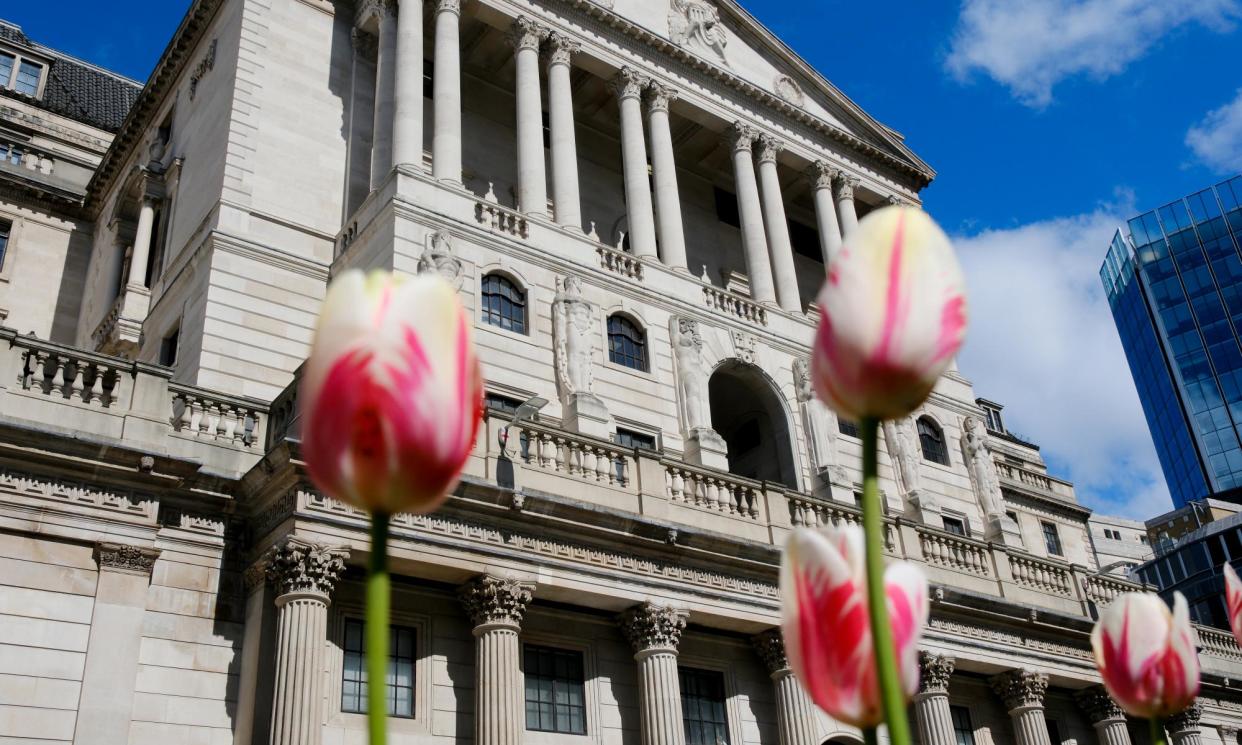Should the Bank of England cut interest rates with Britain’s economy in bloom?

It would come as a shock to most economists if the Bank of England opted to cut interest rates at its policy meeting this week.
Financial markets, which were baying for a cut last May, are these days betting that August or possibly September will be the point at which the Bank starts to lower interest rates from their current level of 5.25%.
The reason for the delay can be found in the UK’s improving economy, which some on the Bank’s monetary policy committee (MPC) believe could trigger the return of inflation later in the year.
Higher shop prices would be embarrassing if victory in the fight against inflation had already been declared. Would the central bank have to raise interest rates again if that happened? Inside the Grade I-listed Threadneedle Street edifice that houses the Bank of England’s headquarters, a U-turn is considered unconscionable. And if the economy can grow when interest rates stand at 5.25%, why hurry to bring down the cost of borrowing?
In an election year, the government might feel more of a sense of urgency about a reduction. After the historic swing against the Conservatives in the Blackpool South byelection and the loss of many council seats, a return to some kind of normal economic progress is considered by many ministers to be their best hope in the battle with Labour.
With inflation forecast to fall below the 2% target as early as next month, pressure on the Bank to cut rates, and by more than once this year, is likely to intensify as Tory frustration grows.
The independent Bank will be more focused, however, on the dismay among businesses and mortgage-payers needing to refinance their loans. If consumer and business confidence, which has improved in recent months, goes into reverse, the economy will suffer and dramatic cuts in interest rates will be needed to spur a revival.
How robustly the UK has recovered from its recession last year will be revealed by the Office for National Statistics when figures covering the economy’s performance over the first three months of this year are published on Friday.
A bounce-back in consumer spending, driven by higher wages, is expected to be offset by poor trade figures and a general lack of momentum
The ONS is expected to say the economy grew by 0.4% in the first quarter of 2024, after shrinking by 0.3% in the final quarter of 2023 and by 0.1% in the quarter before that.
A bounce-back in consumer spending, driven by higher wages, is expected to be offset by poor trade figures and the general lack of momentum that led to the economy shrinking in the second half of 2023. Taken together, the likelihood is that growth will struggle to achieve a quickening pace this year.
Among the forecasters, the Organisation for Economic Cooperation and Development (OECD) is gloomy about the UK economy, downgrading growth forecasts for 2024 to 0.4% from 0.7% and predicting the UK will be the slowest-growing G7 economy in 2025.
At the more optimistic end of the spectrum, the government’s independent forecasting unit, the Office for Budget Responsibility, has pencilled in growth of 0.8%.
Neither estimates measures up to the 2.6% rise in GDP that the OECD expects in the US this year. That forecast explains why the head of the Federal Reserve, Jerome Powell, signalled last week that it could be some time before the US’s central bank sanctioned an interest rate cut.
Those who worry about the money supply, including Prof Costas Milas at the University of Liverpool management school, argue that high interest rates and tight government spending could tip the UK back into recession.
It is unclear what strategy the Bank intends to follow. On the one hand, its governor, Andrew Bailey, says it should not simply follow the Fed, indicating early rate cuts are possible. On the other, several members of the MPC have talked tough, arguing that even if GDP is increasing only modestly, that still does not warrant a rate cut when there is a lack of skilled workers in many important sectors of the economy.
Worker shortages could be the impulse for higher wages throughout the year, and that could, they say, spark the return of the inflation that the Bank fears.


